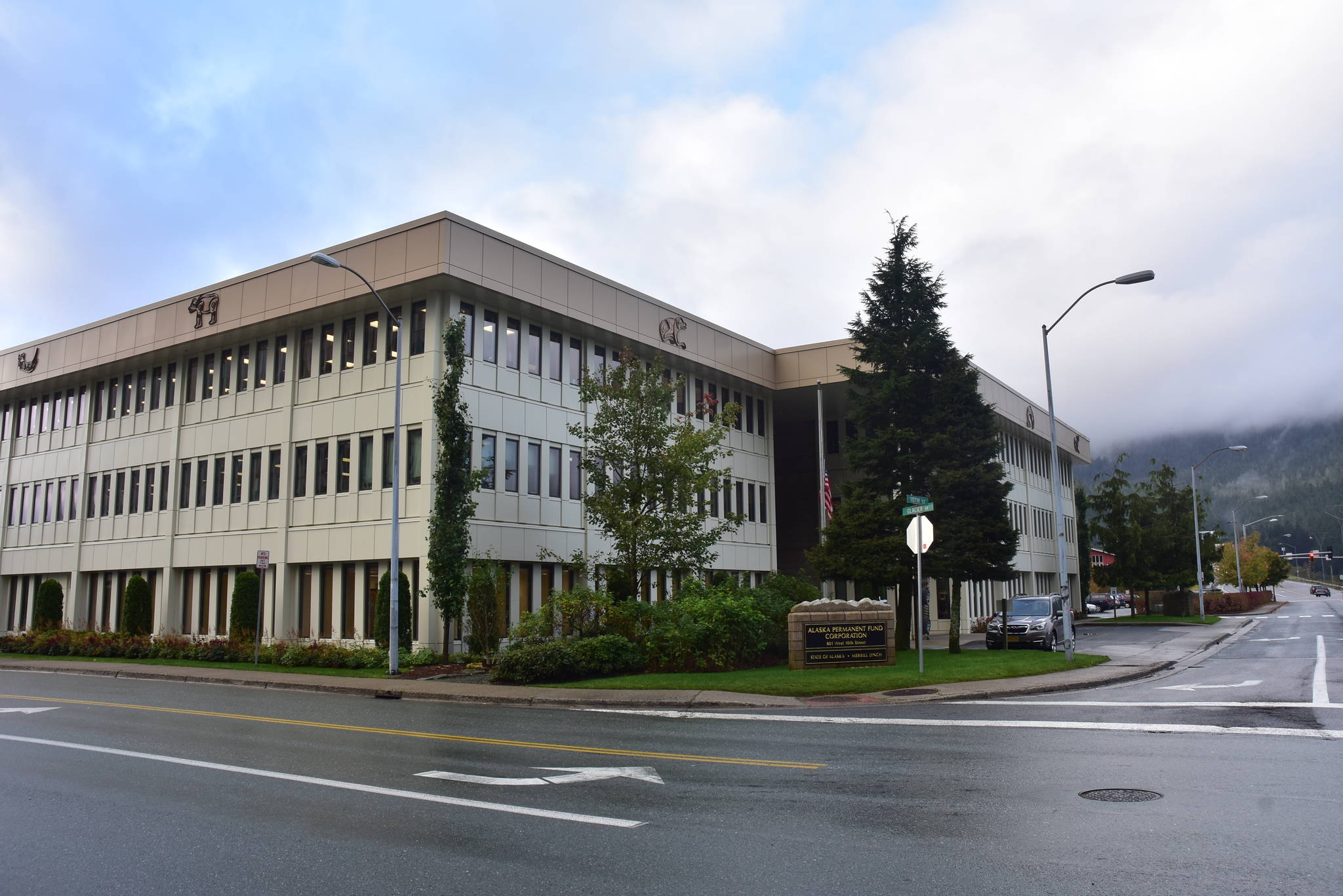Alaska’s Permanent Fund remained relatively steady throughout the COVID-19 pandemic thanks to prudent management and investing, said Angela Rodell, CEO of the Alaska Permanent Fund Corporation.
Speaking to the Juneau Chamber of Commerce Thursday, Rodell said the percent of market value draw from the Earnings Reserve Account of the fund used for the state budget would be about the same $3 billion it’s been for the past few years, even with the percent drawn dropping to an even 5% from 5.25% since 2018.
The fund dropped from $67.9 billion to $65.1 billion at the end of February this year, and as of the latest report on Aug. 31, the total fund value is currently $65.8 billion. Rodell told the chamber it came as a huge relief when the fund ended the fiscal year with positive gains.
But there is still uncertainty ahead.
“There is concern about a recession, not just in the U.S., but globally,” she said. “This is not a U.S.-centric event, it’s affecting the global economy as well. We expect returns to come down some, that would be consistent with where we’re seeing markets headed.”
The nearly $3 billion loss in the spring, when the coronavirus pandemic was first unfolding, caused alarm the decline would continue draining the state’s reserves. But Rodell said even before the pandemic, the fund had been holding on to more cash than usual in anticipation of a natural retraction in the market. When markets dropped earlier this year, the fund was able to put that cash into equity and “ride that wave back up again,” Rodell told the Empire after her talk.
In a news release following the Alaska Permanent Fund Corporation Board of Trustees’ annual meeting on Sept. 24, APFC said “through prudent management and opportunistic positioning, the Fund recovered most of its losses incurred at the onset of the global pandemic and returned 2.01% for FY20, demonstrating strength in the diversity of assets, investments, and our team.”
[Permanent Fund Corporation CEO says virus-affected markets offer opportunity]
Rodell stressed the importance of diversifying the fund, and not relying too heavily on one kind of asset. Private equity, or shares of private companies, comes with high returns but also high risk, she said, and if the fund were to rely too heavily on one kind of asset APFC would be violating its statutory duty to maximize return while minimizing risk.
“We can’t take unchecked risk with the fund,” she said. “Some of the strategies we’ve taken are long term and may not appear to be prudent year-to-year. If we lose sight of our long-term investing we will lose the fund.”
Since 2015. an increasing share of the state’s spending has relied on the Permanent Fund, Rodell said, but it would not be fiscally prudent to use a greater share of those funds to pay for the state’s obligations.
“If you drew the ERA to zero this year, and you allocated it out…used to pay dividends, all the other things the Legislature and Alaskans may want, what’s going to happen is it’s going to accelerate the need for fiscal reform in the state,” she said. “If that money is gone, what’s going to happen is you’re not going to be able to generate that $3 billion for (Fiscal Year 2023 and 2024). You’ve done it at the cost of those future years.”
Rodell noted that despite the pandemic and political divisions over the budget, the Legislature and Gov. Mike Dunleavy had added $4.8 billion into the fund for growth and inflation-proofing. Periodic investments like that had been able to transform the state’s oil wealth into what Rodell called a “truly renewable resource” for all Alaskans.
But political divisions can undermine the long-term goals of the fund, Rodell said, and warned against lawmakers making decisions for the fund based only on short-term results. The difficulty, she said, was trying to distinguish what’s being done in the long term with what’s possible in the short term.
“The temptation might be to put it all in private equity,” which could yield returns as high as 20%, she said. “But that would violate our prudent investor statutes; maximize return and minimize risk. The state is relying on us to be smart and prudent about this. We are going to be long-term investors. We do not get into the spend discussion.”
• Contact reporter Peter Segall at psegall@juneauempire.com. Follow him on Twitter at @SegallJnuEmpire.

